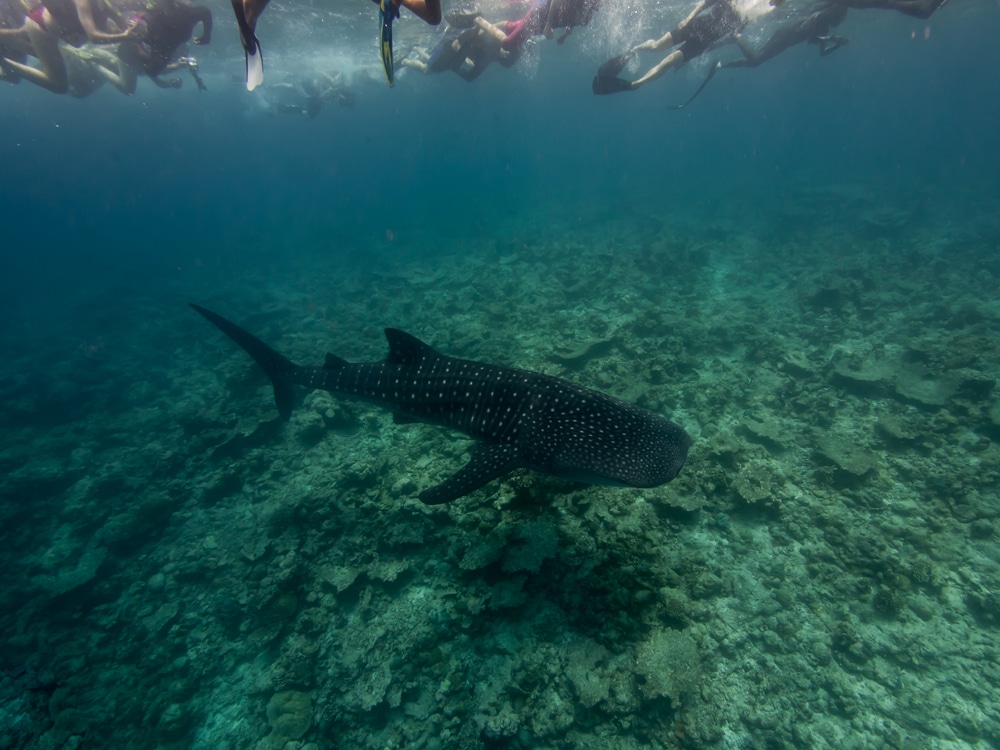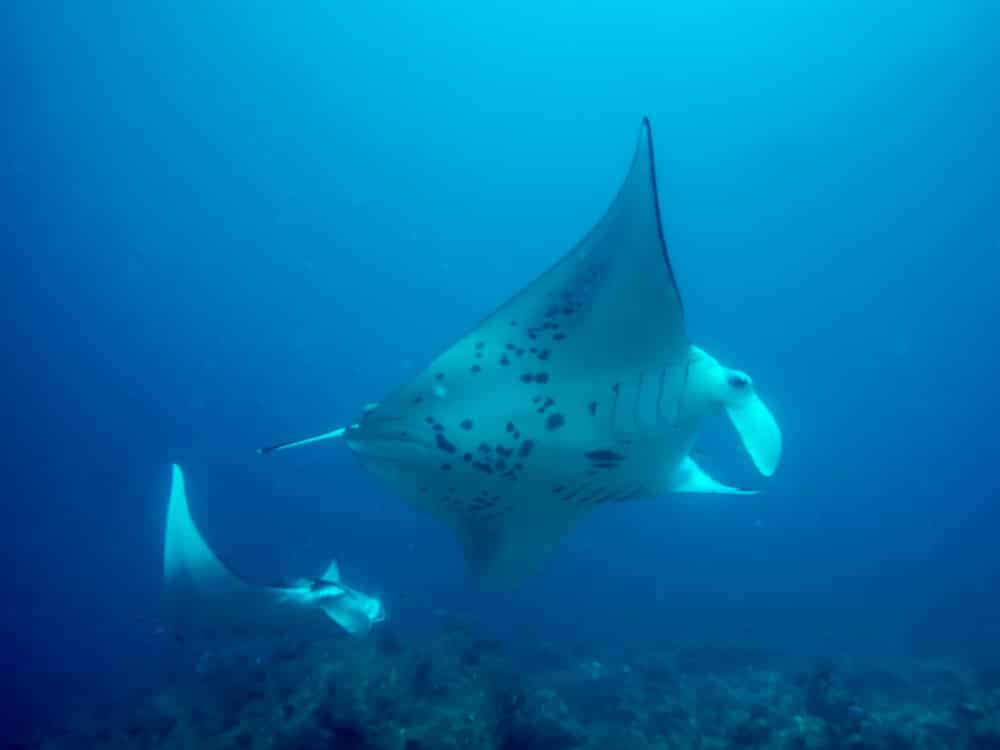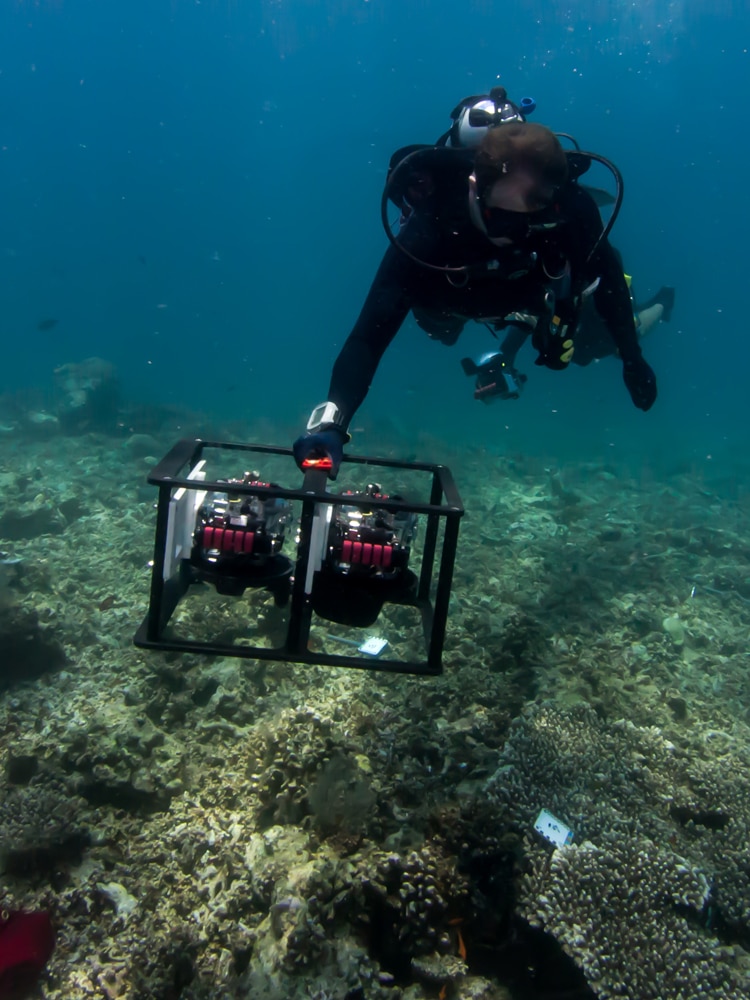News
Carpe Diem: Dive with a Purpose 2018, with the 100 Island Challenge

Scubaverse Contributor Yo-Han Cha reports from his recent liveaboard trip in the Maldives…
It’s been stunning out here in the Maldives. In the first two days we saw mantas and a whale shark – not a bad start to a week on a liveaboard, in fact it was beyond anything I expected. It was a dream start to the trip and Mother Nature and the Carpe Diem staff have certainly delivered.
But this trip wasn’t just about us having fun and enjoying the underwater wildlife of the Maldives, Carpe Diem had us diving with a purpose and we had Brian Zgliczynski and Clinton Edwards from the Scripps Institution of Oceanography, UC San Diego who were here as part of their 100 Island Challenge campaign.
What is the 100 Island Challenge?
To quote Scripps:
“No two coral reefs are the same, and no two reefs will face the future in the same way. This variability, however, can teach us lessons about how to manage coral reefs for the best future possible.”
The 100 Island Challenge is a five year campaign where they’ll aim to survey 100 islands and to resurvey them every two years to plot any changes. 81 islands have been surveyed so far with some of them have already had their two-year resurvey. The 100 Island Challenge team is aiming to complete 95 by the end of 2018.
One of their main methods of data collection is using photogrammetry to survey the reef – other methods being benthic and fish biomass assessments – but on this trip, there was a focus on the photogrammetry. For those of you who are unfamiliar with what it is, photogrammetry is where hundreds, if not thousands, of photographs are processed by computer software to produce a 3D model.
I had come across it before to survey wrecks but it’s not something I’d ever attempted before. This has proved to be an excellent tool for surveying coral reefs as they don’t move, and by surveying the same site over time, the Scripps team have been able to monitor, not just a single snapshot of coral population and distribution but the growth, death and regrowth of the exact same corals in a specific area of the reef.
Which brings us back to the Maldives, with Brian and Clinton here to firstly see if the Maldives was somewhere suitable for the 100 Island Challenge and to test their camera equipment. We, the non-scientist guests, were encouraged to take our cameras and with a brief instruction before the start of the dive, go survey a small coral for ourselves.
Brian and Clinton were using DSLRs and today they mounted two of them together (quite a sight!) in order to survey a section of the reef in a 5m x 5m grid. Nobody else on the trip had a DSLR to take underwater and none of were expected to do a grid survey, but four of us, with four different makes and models of camera, ranging from a simple compact to a mirrorless, went out, chose a coral and gave it a go, not really knowing what the end result would be.
Due to our different cameras, some of us had to approach it slightly differently. I shot in continuous mode and kept the trigger down whilst I swam steadily around my coral. After years of photography where I’ve been told to shoot into the blue for good negative space and to shoot up, the most difficult part of me was to go against my instincts and avoid having any blue in the shot and to shoot down! However, the award for having the most patience and diligence went to Daphne as she individually took over a hundred images of a coral with her compact.
The results for all four of us were in my opinion amazing and I’m not just saying so because one of them’s mine. Considering that due to time constraints Clint processed the images at a lower resolution than he would do normally (Scripps are going to process them at full resolution when they get back to San Diego) and that we were total novices to this, the results were a lot more detailed than I expected them to be, which is exciting in more than one way as it shows that this method of surveying is one that can be easily trained to others.
We’re now, sadly, just over halfway through our trip. The diving, the staff and the liveaboard have been excellent and it’s been exciting to learn how we, each in our small way, can make a difference.
For more information on the 100 Island Challenge click here.
For more information about Scripps Institution of Oceanography click here.
For more information about Carpe Diem click here.
Gear News
Scubapro Free Octopus Promotion 2024
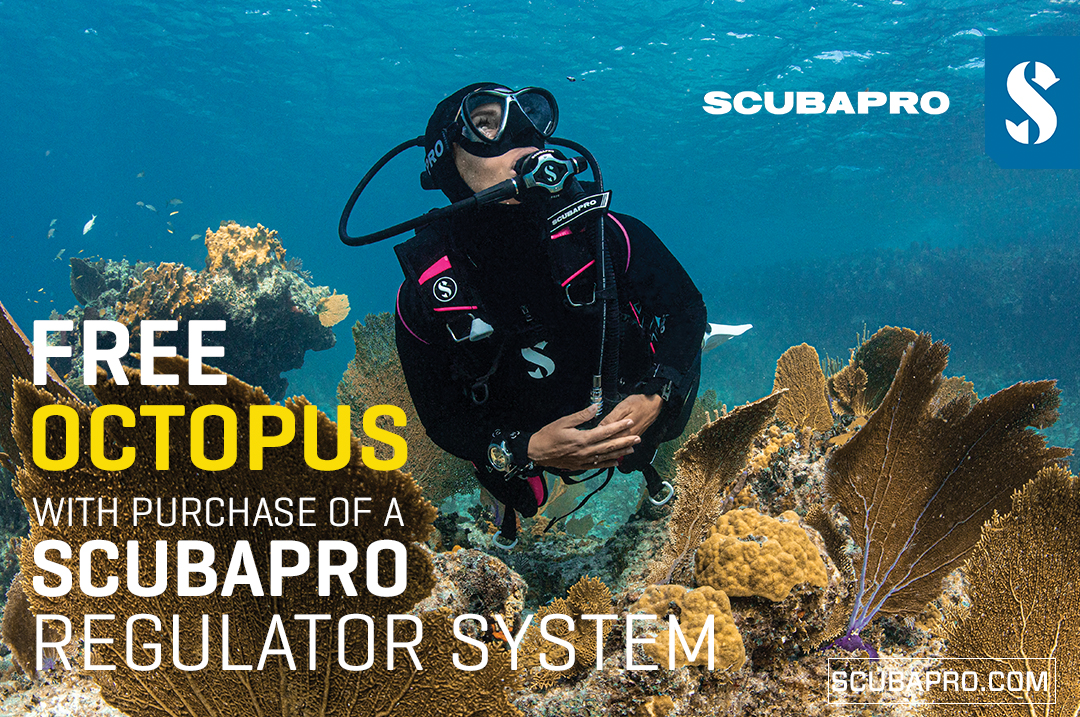
Free Octopus with every purchase of a SCUBAPRO regulator system
Just in time for the spring season, divers can save money with the FREE OCTOPUS SPRING PROMOTION! Until July 31st SCUBAPRO offers an Octopus for free
with every purchase of a regulator system!
Get a free S270 OCTOPUS with purchase of these combinations:
MK25 EVO or MK19 EVO with A700
MK25 EVO or MK19 EVO with S620Ti
MK25 EVO or MK19 EVO with D420
MK25 EVO Din mit S620Ti-X
Get a free R105 OCTOPUS with purchase of the following combinations:
MK25 EVO or MK19 EVO with G260
MK25 EVO or MK17 EVO with S600
SCUBAPRO offers a 30-year first owner warranty on all regulators, with a revision period of two years or 100 dives. All SCUBAPRO regulators are of course certified according to the new European test standard EN250-2014.
Available at participating SCUBAPRO dealers. Promotion may not be available in all regions. Find an authorized SCUBAPRO Dealer at scubapro.com.
More information available on www.scubapro.com.
Blogs
Northern Red Sea Reefs and Wrecks Trip Report, Part 3: The Mighty Thistlegorm
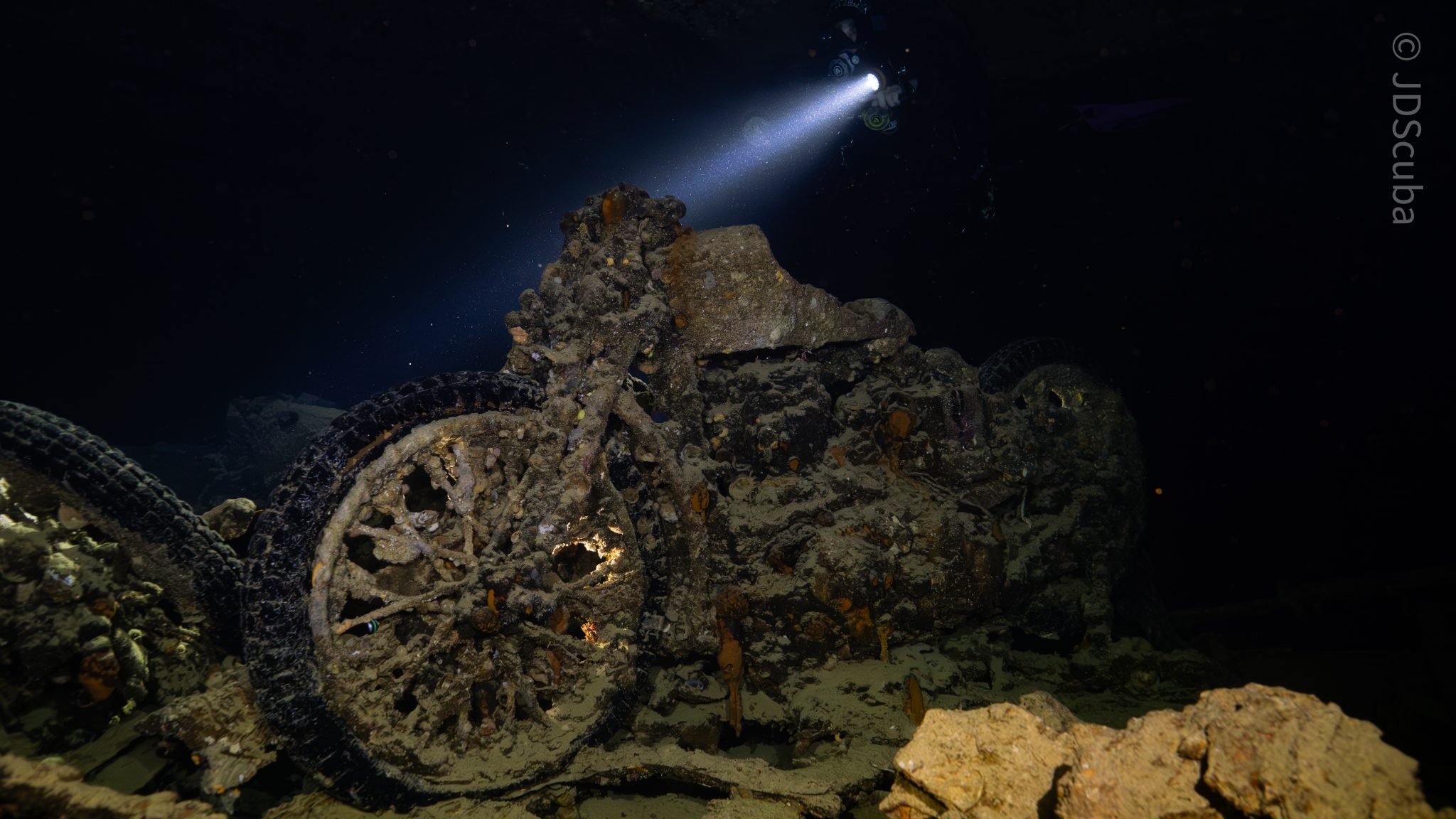
Jake Davies boards Ghazala Explorer for an unforgettable Red Sea diving experience…
Overnight, the wind picked up, making the planned morning dive a bit bumpy on the Zodiacs to the drop point on Thomas Reef. There, we would dive along the reef before descending through the canyon and then passing under the arch before ascending the wall with a gentle drift. The site provided great encounters with more pelagic species, including shoals of large barracuda, tuna, and bigeye trevally.
Once back on the boat, it was time to get everything tied down again as we would head back south. This time, with the wind behind us, heading to Ras Mohammed to dive Jackfish Alley for another great gentle drift wall dive before then heading up the coast towards the Gulf of Suez to moor up at the wreck of the Thistlegorm. This being the highlight wreck dive of the trip and for many onboard, including myself, it was the first time diving this iconic wreck. I had heard so much about the wreck from friends, and globally, this is a must on any diver’s list. Fortunately for us, there was only one other boat at the site, which was a rarity. A great briefing was delivered by Ahmed, who provided a detailed background about the wreck’s history along with all the required safety information as the currents and visibility at the site can be variable.
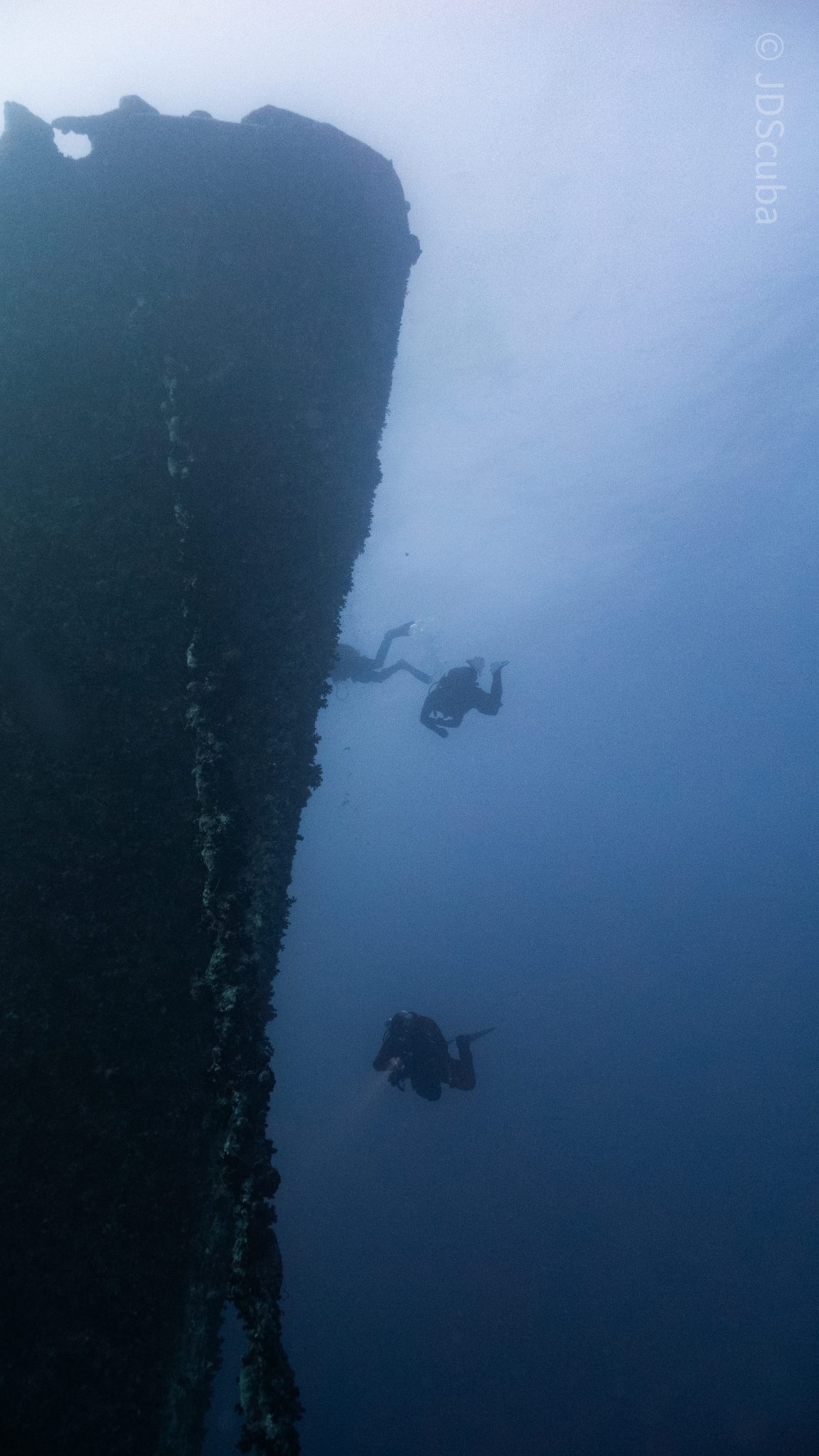
Kitting up, there was a lot of excitement on deck before entering the water and heading down the shoreline. Descending to the wreck, there was a light northerly current which reduced the visibility, making it feel more like the conditions that can be found off the Welsh coast. At 10m from the bottom, the outline of the wreck appeared as we reached the area of the wreck which had been bombed, as our mooring line was attached to part of the propeller shaft. Arriving on deck, instantly everywhere you looked there were many of the supplies which the ship was carrying, including Bren Carrier tanks and projectiles that instantly stood out.
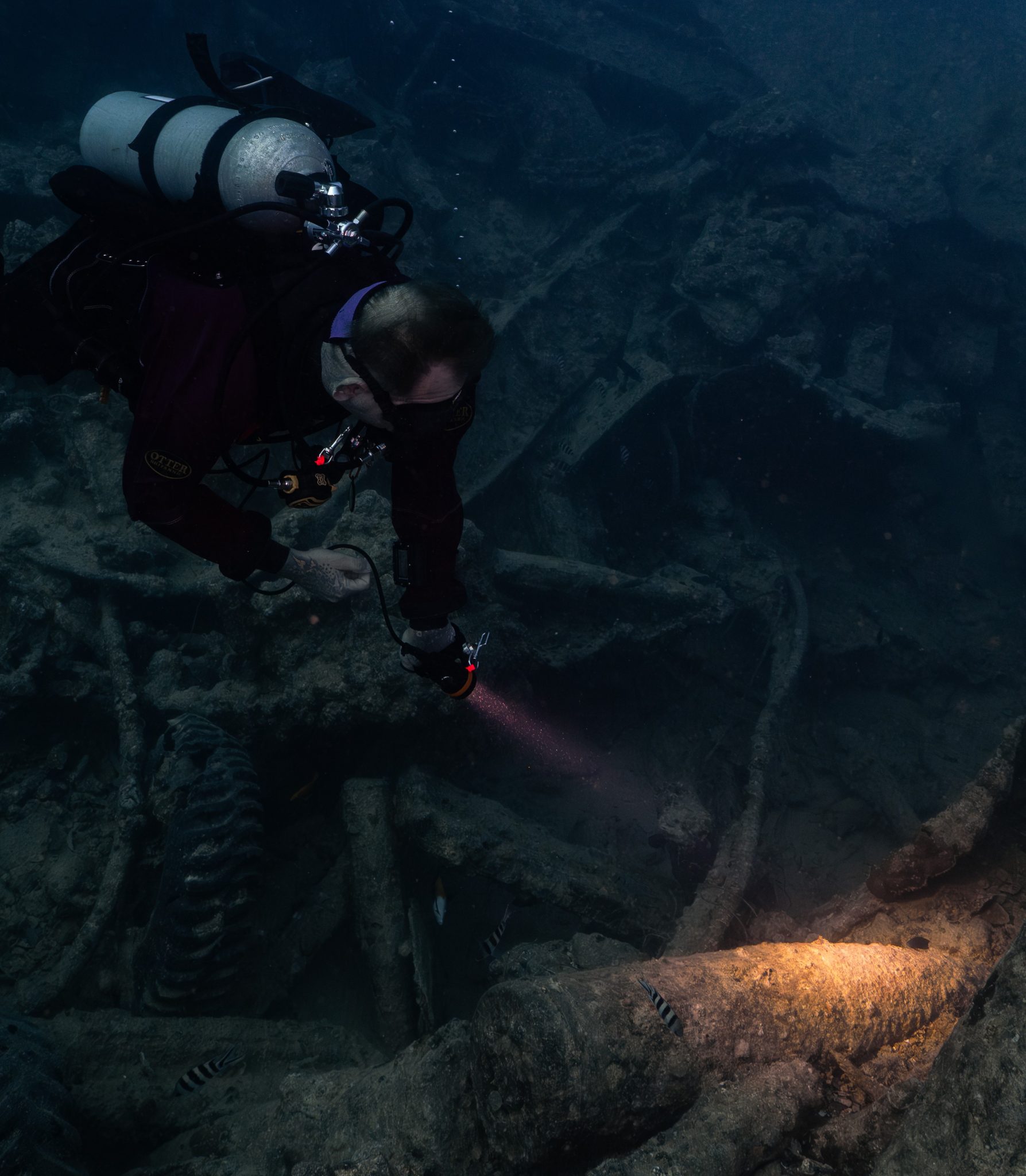
We headed around the exterior, taking a look at the large propeller and guns mounted on deck before entering the wreck on the port side to take a look in the holds. It was incredible to see all the trucks, Norton 16H, and BSA motorcycles still perfectly stacked within, providing a real snapshot in time.
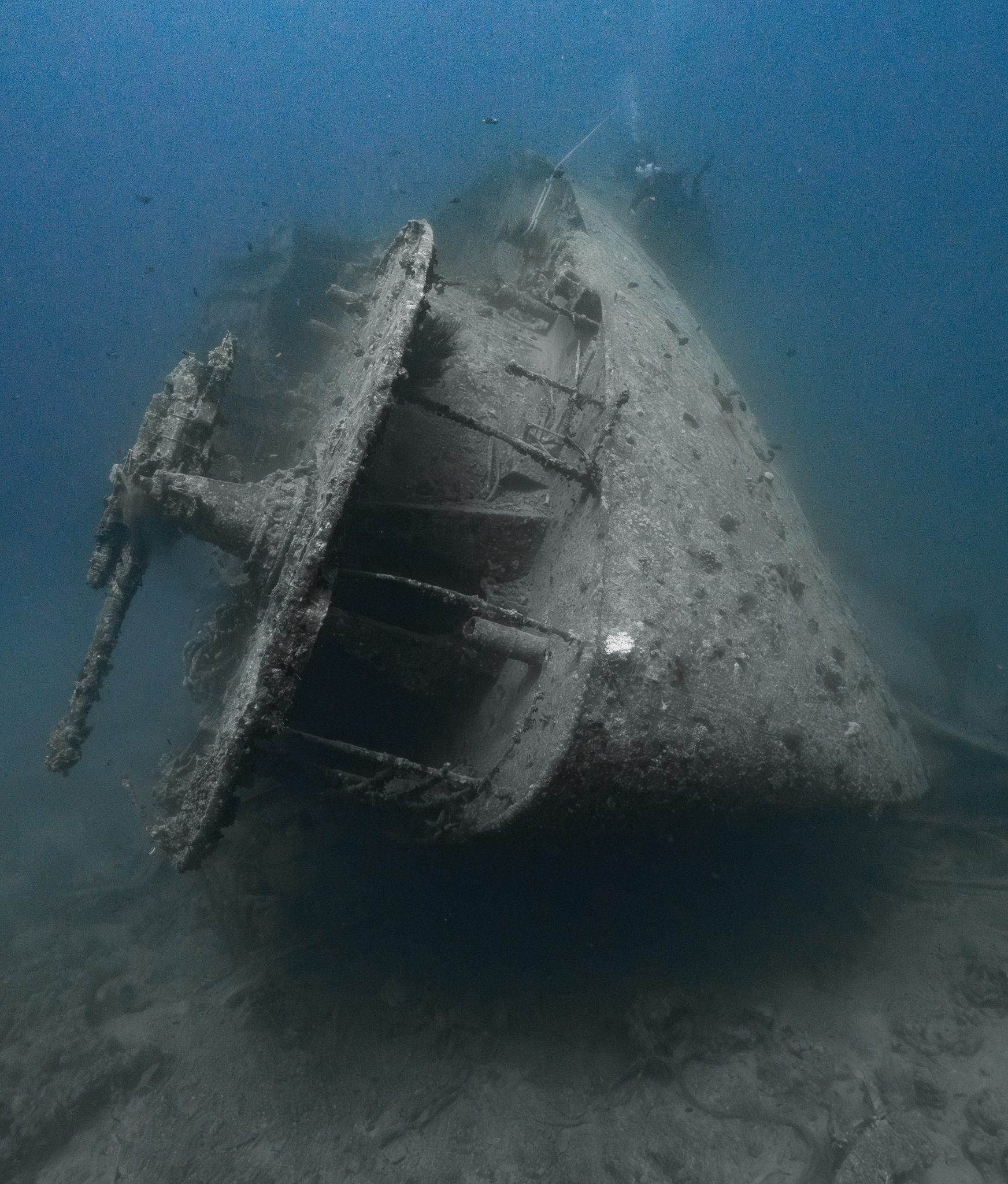
Overall, we had four dives on the Thistlegorm, where for all of the dives we were the only group in the water, and at times, there were just three of us on the whole wreck, which made it even more special, especially knowing that most days the wreck has hundreds of divers. Along with the history of the wreck, there was plenty of marine life on the wreck and around, from big green turtles to batfish, along with shoals of mackerel being hunted by trevally. Some unforgettable dives.
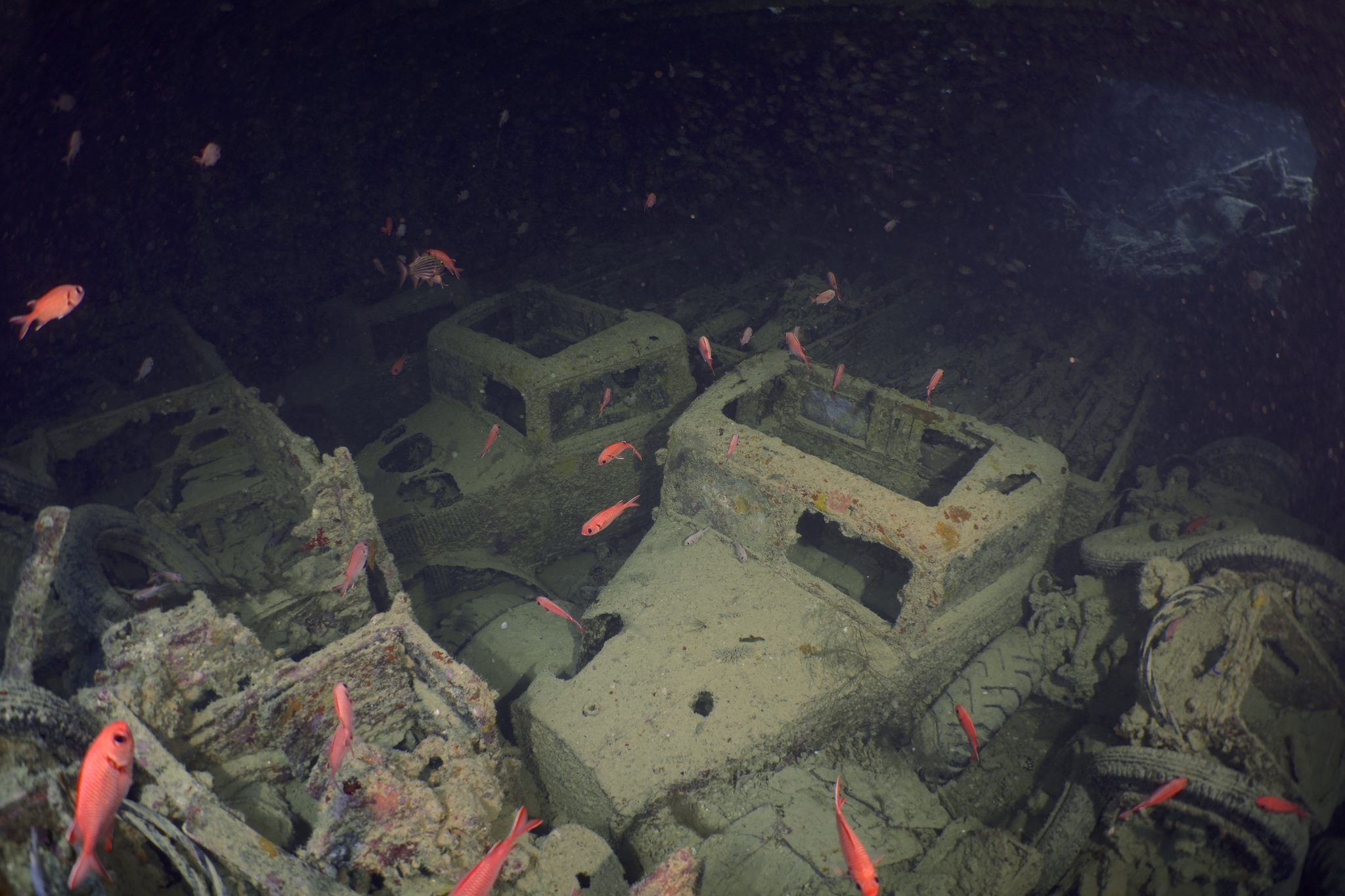
The final leg of the trip saw us cross back over the Suez Canal to the Gobal Islands where we planned to stay the night and do three dives at the Dolphin House for the potential of sharing the dive with dolphins. The site, which included a channel that was teeming with reef fish, especially large numbers of goatfish that swam in large shoals along the edge of the reef. These were nice relaxing dives to end the week. Unfortunately, the dolphins didn’t show up, which was okay as like all marine life they are difficult to predict and you can’t guarantee what’s going to be seen. With the last dive complete, we headed back to port for the final night where it was time to clean all the kit and pack before the departure flight the next day.
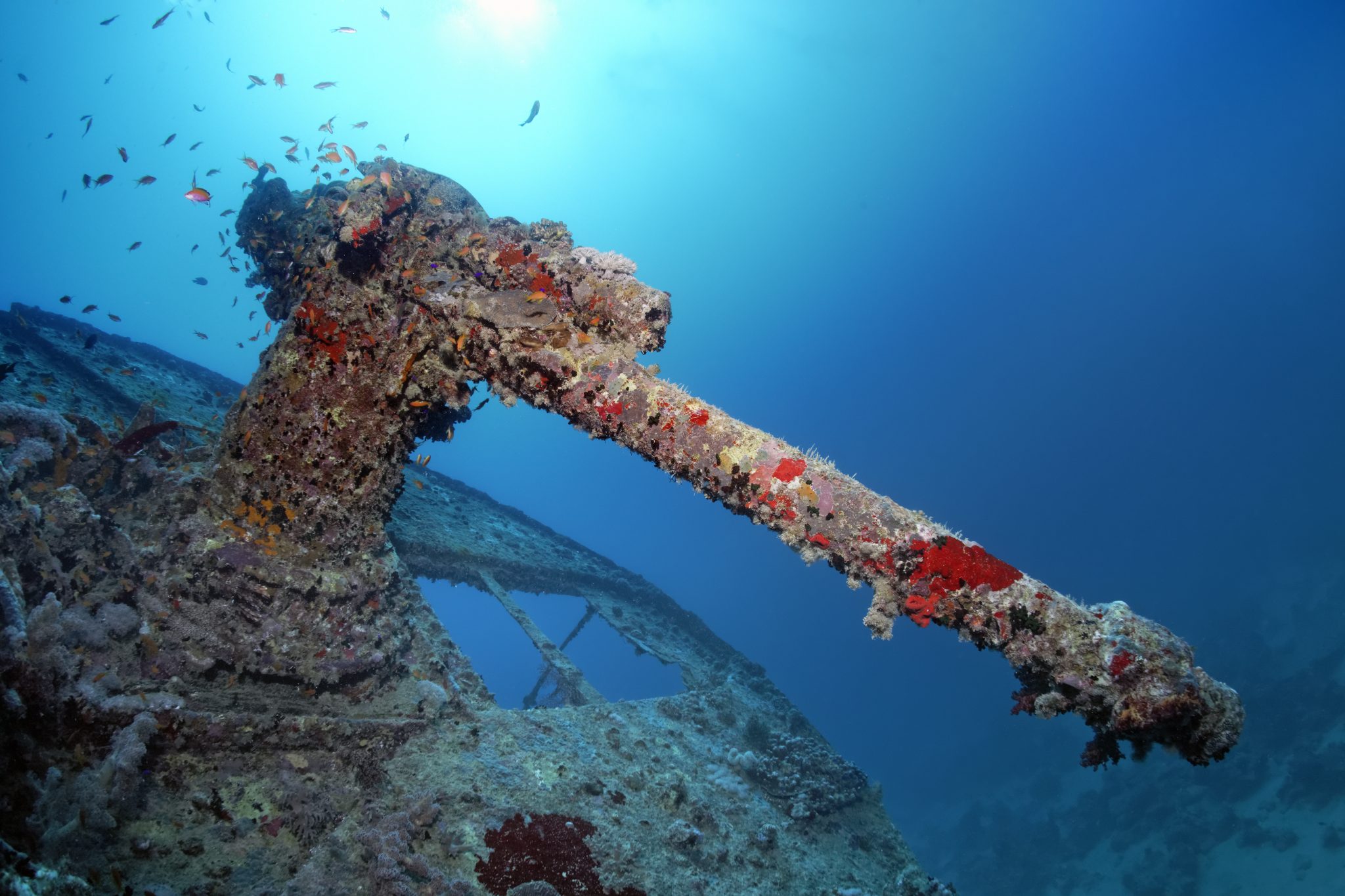
The whole week from start to finish on Ghazala Explorer was amazing; the boat had all the facilities you need for a comfortable week aboard. The crew were always there to help throughout the day and the chefs providing top quality food which was required after every dive. The itinerary providing some of the best diving with a nice mixture of wreck and reef dives. I would recommend the trip to anyone, whether it’s your first Red Sea liveaboard in the Red Sea or you’re revisiting. Hopefully, it’s not too long before I head back to explore more of the Red Sea onboard Ghazala Explorer.
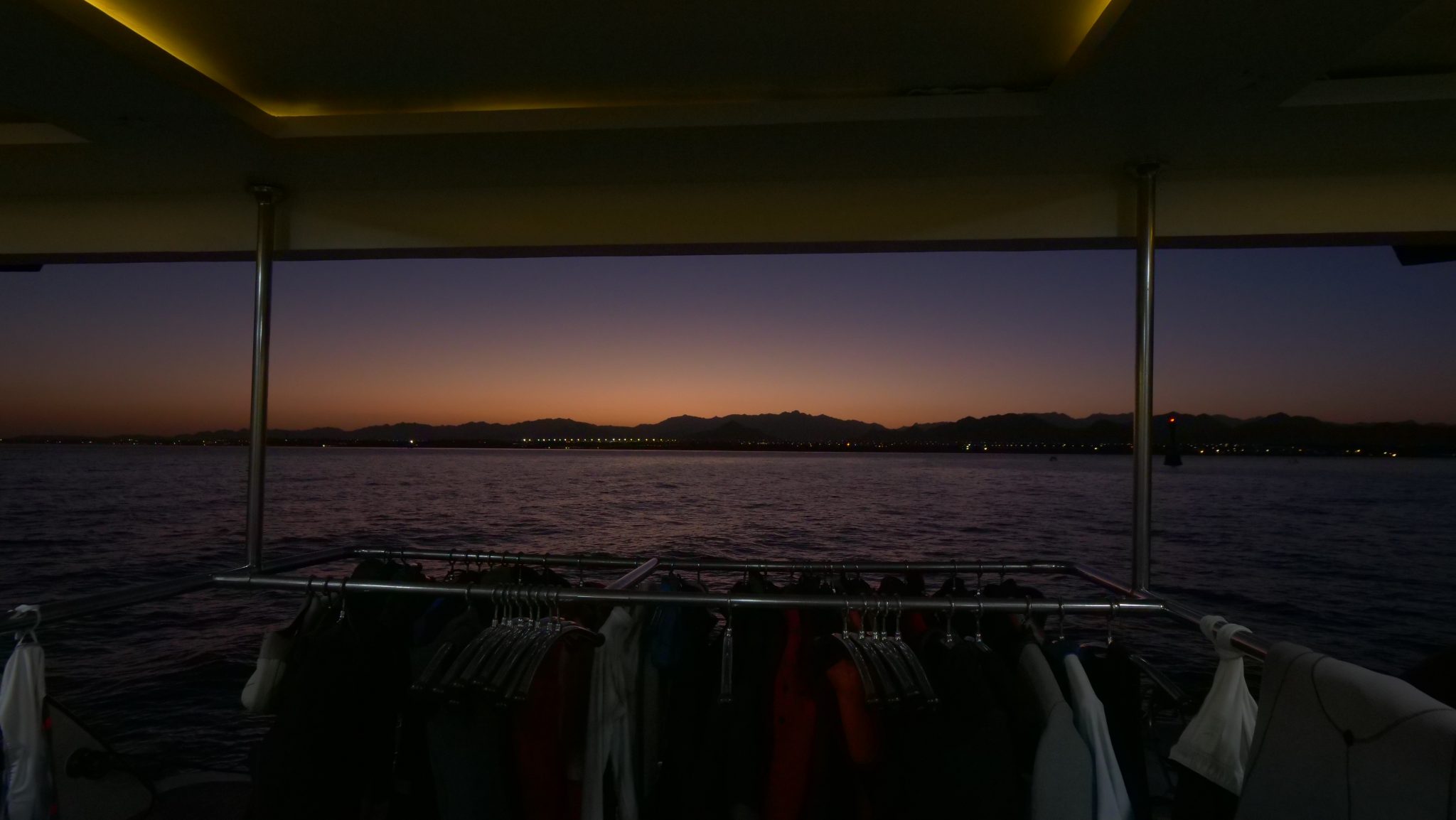
To find out more about the Northern Red Sea reef and wrecks itineraries aboard Ghazala Explorer, or to book, contact Scuba Travel now:
Email: dive@scubatravel.com
Tel: +44 (0)1483 411590
Photos: Jake Davies / Avalon.Red
-

 News3 months ago
News3 months agoHone your underwater photography skills with Alphamarine Photography at Red Sea Diving Safari in March
-

 News3 months ago
News3 months agoCapturing Critters in Lembeh Underwater Photography Workshop 2024: Event Roundup
-

 Marine Life & Conservation Blogs2 months ago
Marine Life & Conservation Blogs2 months agoCreature Feature: Swell Sharks
-

 Blogs2 months ago
Blogs2 months agoMurex Resorts: Passport to Paradise!
-

 Blogs2 months ago
Blogs2 months agoDiver Discovering Whale Skeletons Beneath Ice Judged World’s Best Underwater Photograph
-

 Marine Life & Conservation2 months ago
Marine Life & Conservation2 months agoSave the Manatee Club launches brand new webcams at Silver Springs State Park, Florida
-

 Gear Reviews3 months ago
Gear Reviews3 months agoGear Review: Oceanic+ Dive Housing for iPhone
-

 Gear Reviews2 weeks ago
Gear Reviews2 weeks agoGEAR REVIEW – Revolutionising Diving Comfort: The Sharkskin T2 Chillproof Suit


